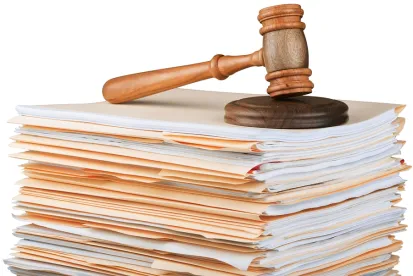In Perry v. Cable News Network, the Eleventh Circuit dealt another loss to putative class-action plaintiffs seeking to use the Video Privacy Protection Act (“VPPA”) as a weapon against free online video services. The court affirmed that to be a “subscriber” of a video service—someone who can sue under the VPPA—one must have a genuine commitment, relationship, or association with that service. Because the Perry plaintiff could not show that, he lost.
The VPPA creates a cause of action for video service providers that disclose their consumers’ personally identifiable information alongside their viewing information. The typical Internet example is a paid video service that gives an advertiser a paying subscriber’s email address and viewing history.
To sue under the VPPA, a person must be a “consumer.” The VPPA defines that term as meaning a renter, purchaser, or subscriber of goods or services from a video service provider. “Subscriber” has raised the question of whether someone who downloads and uses a free app can be a “consumer” who can sue under the VPPA. At least in the Eleventh Circuit, Ellis v. Cartoon Network, Inc. answered that question: something more than mere use is needed. Instead, Ellis held that a proper VPPA plaintiff needs “some type of commitment, relationship, or association (financial or otherwise)” between the plaintiff and the video service provider.
In Perry, the district court relied on Ellis to dismiss plaintiff Perry’s suit without leave to amend because he was merely a user of CNN’s free app. Perry argued he could state a VPPA claim because he subscribed to CNN’s television channel through his cable package. This cable subscription let Perry access exclusive content via the CNN app. Perry said this made him a CNN app subscriber. He also said he paid CNN indirectly through his cable subscription. Perry appealed to the Eleventh Circuit on those theories.
The Eleventh Circuit rejected Perry’s arguments. It ruled that under Ellis, subscribers must have commitments, relationships, or associations with the video service provider itself. But as the court explained, Perry’s relationship to CNN was not direct. He paid his cable company, not CNN, to be able to watch CNN on his TV. He did not even register an account on CNN’s app. Nor did he give CNN any personal information like an email address, credit card number, or GPS location. Although he did log into the CNN app to view exclusive content, he did so using his cable provider credentials, not CNN credentials. At most he downloaded CNN’s app and perhaps acknowledged that he had a cable TV subscription. Such conduct, the Eleventh Circuit concluded, was only “ephemeral investment and commitment” to CNN itself, nothing close to what being a “subscriber” demands under Ellis.
The court also rejected Perry’s argument that CNN’s indirect receipt of money, through Perry’s paying his cable provider, made Perry a CNN subscriber. As the court explained, this shed no light on Perry’s commitment to CNN itself. For instance, if the cable provider removed CNN from its package, Perry could still use the app unimpeded. So the Eleventh Circuit affirmed the district court’s decision to dismiss Perry’s complaint without leave to amend.
Separately, CNN had argued that Perry had no standing to bring his case at all. It based this argument on the Supreme Court’s holding in Spokeo v. Robbins: a bare procedural violation of a statute does not create standing because that violation may not cause, or present any risk of, harm to the plaintiff. But the Eleventh Circuit ruled that Perry had not just alleged a bare procedural violation of the VPPA. Rather, it ruled that violating a person’s privacy interests—like the right not to have personal information about video viewing disclosed—is a harm even if it is intangible.
Perry is another win for VPPA defendants. Even without a Spokeo bar to standing, the narrowing of the “subscriber” definition may make VPPA cases less palatable to the plaintiff’s bar.




 />i
/>i

